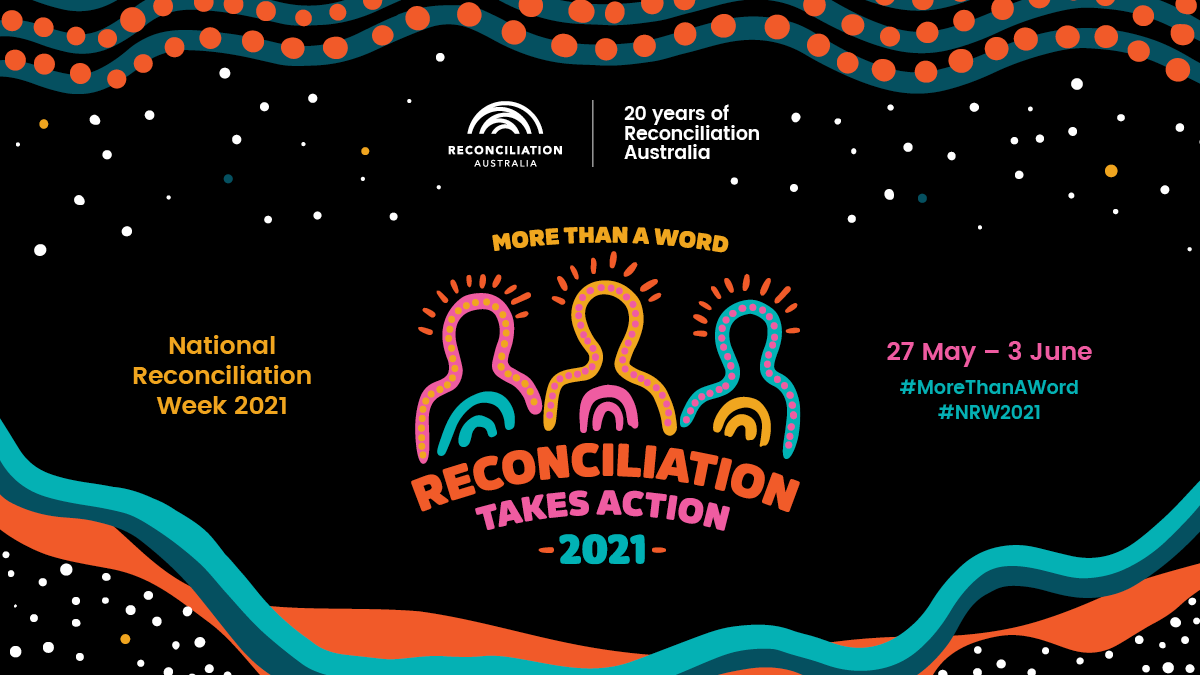National Reconciliation Week 2021 in Australia
Date published:
27 May 2021

This year’s theme for National Reconciliation Week in Australia is ‘More than a word’. The reconciliation movement urges us towards braver and more impactful action.
The RACP recognises that we have a vital role to play ensuring the broader membership is educated and equipped with both clinical and cultural competencies required to serve the health needs of Aboriginal and Torres Strait Islander people and create a culturally safe workforce. The RACP is actively committed to creating a culturally safe health system for Aboriginal and Torres Strait Islander people through working towards parity for Indigenous doctors and creating a culturally safe physician workforce through training and education for members.
There are a number of frameworks and policy statements that guide the implementation of the RACP’s commitment to creating a culturally safe workforce:
- contribute to addressing Indigenous health inequities
- growing the Indigenous physician workforce
- educating and equipping the physician workforce on Indigenous health and culturally safe clinical practice
- fostering a culturally safe and competent College
- meeting the regulatory standards and requirements of the Australian Medical Council.
- The statement on Indigenous child health in Australia and Aotearoa New Zealand
The statement provides concrete steps that paediatricians, health professionals and the health system can take to improve the health of Indigenous children in Australia and Aotearoa New Zealand. This statement tasks health care professionals with naming and addressing factors that contribute to health inequities for Indigenous people in Australia and Aotearoa New Zealand including: systemic racism, unconscious bias, privilege and impacts of colonisation.
- The Medical Specialist Access Framework (MSAF)
This is a guide for health sector stakeholders to promote and support equitable access to specialist care for Aboriginal and Torres Strait Islander people. The MSAF provides case studies that showcase physicians providing culturally safe care to Aboriginal and Torres Strait Islander communities and patients. The MSAF tools and resources webpage provides tools to improve culturally safe skills and the MSAF guide for physicians outlines the first steps physicians can take to reach out to Aboriginal health services and communities.
Whilst the above frameworks and resources focus primarily on culturally safe care for patients, the key lessons are applicable for physicians in the workplace more broadly. Creating a culturally safe workforce encompasses a collegiate environment free of racism, prejudice and unconscious bias. RACP members play a crucial role of leading cultural change in the workplace.
Reconciliation is a journey for all Australians, and at the heart of this journey are the relationships between the broader Australian community and Aboriginal and Torres Strait Islander People. We all have our part to play when it comes to reconciliation, and in playing our part we collectively value Aboriginal and Torres Strait Islander peoples, histories, cultures and futures as part of our shared identity.
The RACP encourages all members to implement the above resources and frameworks in their workplace and professional practice – what actions are you taking to enable reconciliation in your workplace?